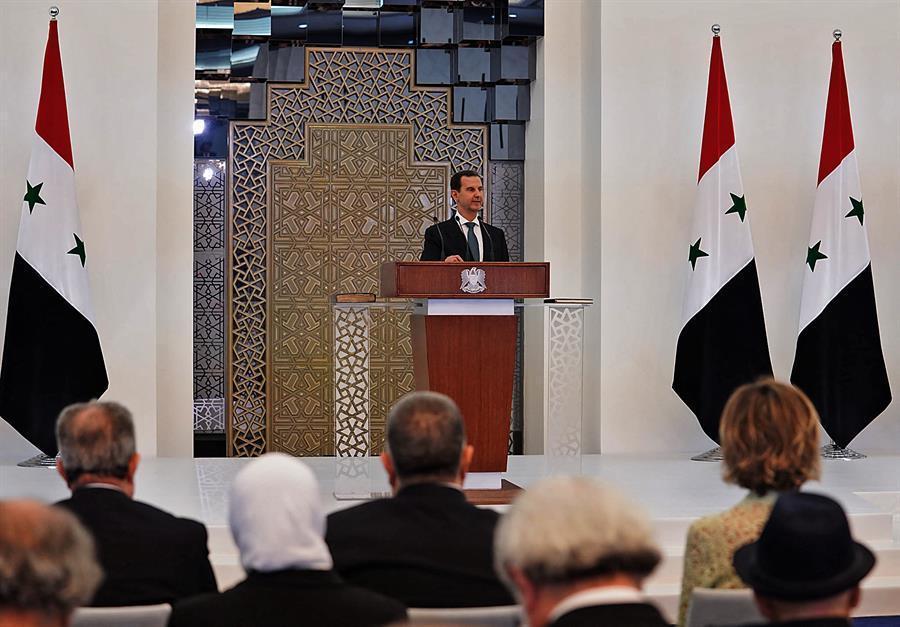
President Bashar al-Assad took the oath of office for a fourth term in war-ravaged Syria on July 17, after officially winning 95 percent of the vote in an election dismissed abroad.
It was the second presidential poll since the start of a decade-long civil war that has killed almost half a million people and battered the country’s infrastructure.
Shortly before the ceremony, rockets fired by pro-government forces killed six people including three children and a rescue worker in the country’s last major rebel bastion of Idlib, the Syrian Observatory for Human Rights said.
An AFP correspondent in the village of Sarja saw men work hurriedly to remove bodies from the rubble of a collapsed home, before carrying one away in a red blanket.
Assad, 55, was sworn in on Syria’s constitution and the Koran in the presence of more than 600 guests, including ministers, businessmen, academics and journalists, organisers said.
The elections "have proven the strength of popular legitimacy... conferred on the state", Assad said in his inauguration speech.
They "have discredited the declarations of Western officials on the legitimacy of the state".
On the eve of the May 26 election, the United States, Britain, France, Germany and Italy said the poll was "neither free nor fair", and Syria’s fragmented opposition has called it a "farce".
Syria’s war has displaced millions of people since starting in 2011 with the repression of anti-government protests.
Assad called on "those who bet on... the collapse of the state" to return to "the homeland’s embrace".
With his campaign slogan, "Hope through work", Assad had cast himself as the sole viable architect of reconstruction.
In his speech, he said the focus was now on "liberating" areas still beyond government control and boosting the economy and people’s livelihoods.
After a series of victories against jihadists and rebels with key backing from allies Russia and Iran, government forces today control two-thirds of Syria.
Assad takes his oath as the country faces a dire economic crisis.
More than 80 percent of the population live in poverty, and the Syrian pound has plunged in value against the dollar, causing skyrocketing inflation.
In recent weeks, the government has hiked the price of petrol, bread, sugar and rice, while power cuts can last up to 20 hours a day amid fuel shortages.
Nationwide, 12.4 million people struggle to find enough food each day, the World Food Programme says.
The Damascus government has blamed the country’s economic woes on Western sanctions and a deepening crisis in neighbouring Lebanon.
Banks in Lebanon have for more than a year forbidden depositors from withdrawing their dollar savings, affecting Syrian clients.
"The biggest obstacle now is the Syrian funds frozen in Lebanese banks," said Assad, estimating them to amount to tens of billions of dollars.
Syria’s war has cost the country $1.2 trillion, the World Vision charity estimates.
After the swearing-in ceremony, Assad met Chinese Foreign Minister Wang Yi, making the first visit by a high-ranking Chinese official to Syria since early 2012.
Both sides discussed Syria possibly taking part in China’s "Belt and Road" infrastructure and trade initiative, the presidency said.
Assad was first elected by referendum in 2000 following the death of his father Hafez al-Assad, who had ruled Syria for 30 years.